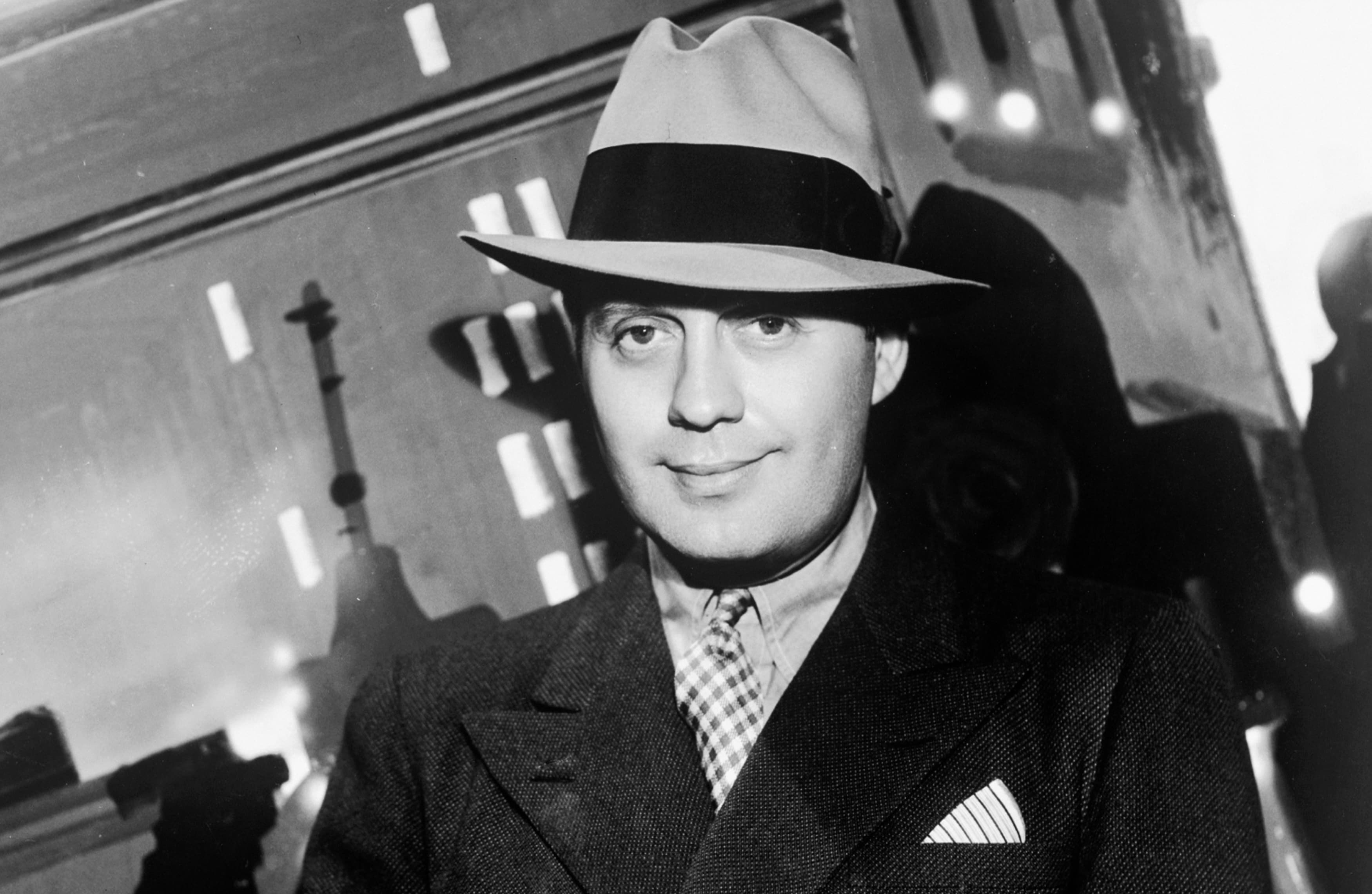Jack Benny

About
Biography
Filmography
Family & Companions
Bibliography
Notes
Posthumously inducted into the Television Academy Hall of Fame in 1988.
"George [Burns] didn't have to do anything, and my father would laugh, because he knew he was about to be insulted. It was a Pavlov's dog kind of relationship, the kind that extended to my father's relationship with the audience. He had trained audiences over the years with the miserly character to the point that you only had to mention money, not even tell the joke, and they laughed. They were conditioned." --Joan Benny in New York Post, December 10, 1990.
Biography
Masterful, much-loved comedian and comic actor, an influential yet essentially inimitable staple of radio and later TV for half a century. Benny's star persona was famous for its cynical, worrisome, almost mean nature; its miserliness; and for Benny's insistence on playing the violin (poorly) at social gatherings. (In real life Benny was actually a fairly accomplished violinist--hence his ability to butcher it so well.) Among many comic mannerisms Benny perfected were an effeminate walk and accompanying gestures; a highly deliberate, leisurely paced line delivery; and, best of all, a withering, long-suffering stare at the camera as he endured other characters' many intended or accidental insults. Among the loyal comic company he cultivated were announcer Don Wilson and singer Dennis Day, his real-life wife Mary Livingstone, and most memorable of all, Eddie Anderson as "Rochester," the valet with whom Benny shared a surprisingly intimate and complex relationship.
Benny made very occasional films beginning with the coming of sound. He was at his busiest in the 1930s and early 40s, and films ranging from "Chasing Rainbows" (1930) to "Broadway Melody of 1936" (1935), "Artists and Models" (1937), and "The Meanest Man in the World" (1943) all gave him some good one-liners and comic situations, but somehow Hollywood films never quite suited him. His unique star persona rarely found the right vehicles, and it was up to radio and later TV to showcase him properly. Two memorable exceptions were the cross-dressing farce "Charley's Aunt" (1941) and especially Ernst Lubitsch's hilarious dark satire of Nazism, "To Be or Not to Be" (1942), with Benny in peak form as hammy Polish actor Joseph Tura outwitting the Gestapo.
Filmography
Cast (Feature Film)
Producer (Feature Film)
Music (Feature Film)
Misc. Crew (Feature Film)
Cast (Special)
Cast (Short)
Life Events
1911
Offered $15 a week to tour with the Marx Brothers; mother turned down offer
1917
Joined Navy and tried to entertain sailors by playing violin; was booed; actor Pat O'Brien suggested he talk to audience instead
1928
Film acting debut in short, "Jack Benny in Bright Moments"
1929
Feature film debut in "Hollywood Revue of 1929"
1932
Starred on own radio show
1949
Sole film as producer (did not appear in film), "The Lucky Stiff"
Photo Collections
Videos
Movie Clip












Trailer






Family
Companions

Bibliography
Notes
Posthumously inducted into the Television Academy Hall of Fame in 1988.
"George [Burns] didn't have to do anything, and my father would laugh, because he knew he was about to be insulted. It was a Pavlov's dog kind of relationship, the kind that extended to my father's relationship with the audience. He had trained audiences over the years with the miserly character to the point that you only had to mention money, not even tell the joke, and they laughed. They were conditioned." --Joan Benny in New York Post, December 10, 1990.











